Environmental Review & CEQA Reform
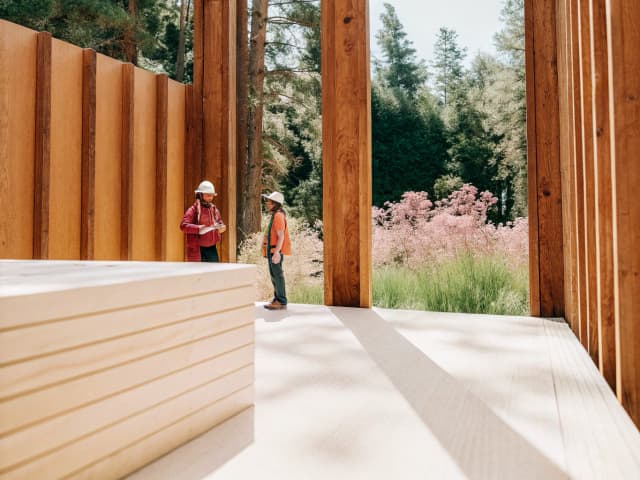
Geothermal waste: exemption from generation and handling fees: study.
Requires a state study by July 2026 on exempting geothermal waste from hazardous waste fees. Establishes automatic repeal of the study requirement on January 1, 2031. Maintains existing criminal penalties for violations of hazardous waste control laws.
Geothermal waste: exemption from generation and handling fees: study.

Requires a state study by July 2026 on exempting geothermal waste from hazardous waste fees. Establishes automatic repeal of the study requirement on January 1, 2031. Maintains existing criminal penalties for violations of hazardous waste control laws.
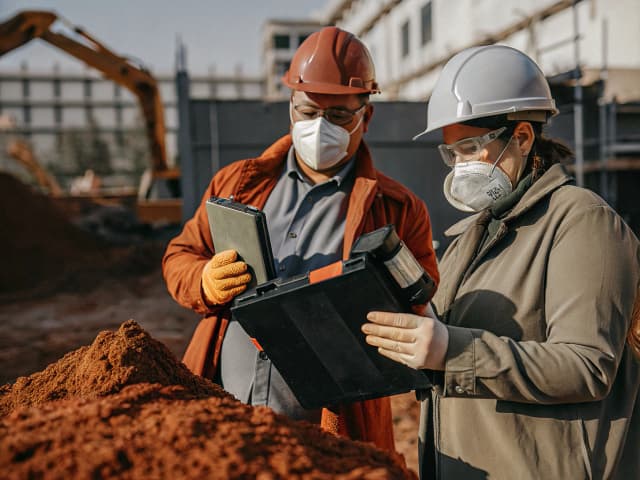
California Environmental Quality Act: judicial streamlining: state of emergency: wildfire.
• Establishes CEQA streamlining for wildfire-damaged projects in governor-emergency areas. • Requires concurrent record with environmental review beginning 2027 and a 270-day deadline. • Shifts litigation costs to applicants and disallows state reimbursements. • Judicial Council must adopt rules and may use a special master.
California Environmental Quality Act: judicial streamlining: state of emergency: wildfire.

• Establishes CEQA streamlining for wildfire-damaged projects in governor-emergency areas. • Requires concurrent record with environmental review beginning 2027 and a 270-day deadline. • Shifts litigation costs to applicants and disallows state reimbursements. • Judicial Council must adopt rules and may use a special master.

California Environmental Quality Act: California Vegetation Treatment Program.
Requires California to expand its vegetation treatment program to cover more areas for wildfire prevention by 2027. Authorizes public agencies to partner with Native American tribes on vegetation management projects. Mandates the integration of indigenous knowledge and cultural burning practices into vegetation management. Requires projects to specify plans for managing and potentially selling biomass from vegetation treatments.
California Environmental Quality Act: California Vegetation Treatment Program.

Requires California to expand its vegetation treatment program to cover more areas for wildfire prevention by 2027. Authorizes public agencies to partner with Native American tribes on vegetation management projects. Mandates the integration of indigenous knowledge and cultural burning practices into vegetation management. Requires projects to specify plans for managing and potentially selling biomass from vegetation treatments.
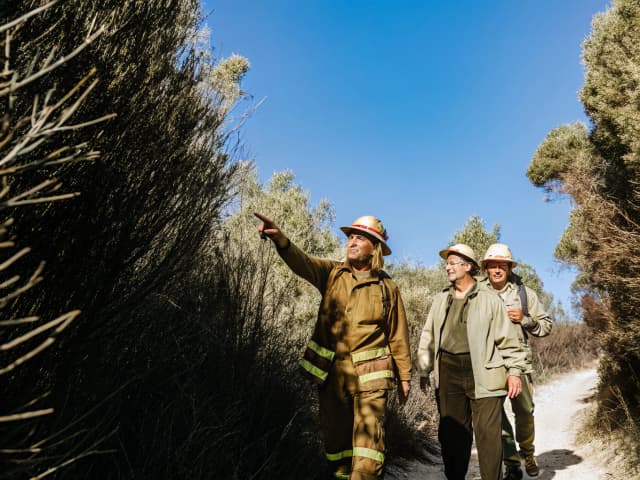
Wildfire safety: fuels reduction projects.
Exempts critical wildfire prevention projects from environmental review requirements until January 2028. Requires public meetings 30 days before approving any fuel reduction projects in high-fire-risk zones. Mandates state agencies to report on emergency wildfire prevention activities by January 2026. Allows removal of hazardous vegetation and creation of fuel breaks to improve emergency access routes.
Wildfire safety: fuels reduction projects.

Exempts critical wildfire prevention projects from environmental review requirements until January 2028. Requires public meetings 30 days before approving any fuel reduction projects in high-fire-risk zones. Mandates state agencies to report on emergency wildfire prevention activities by January 2026. Allows removal of hazardous vegetation and creation of fuel breaks to improve emergency access routes.

California Science and Health Research Bond Act.
Establishes the California Foundation for Science and Health Research and a $23B bond act. Prioritizes in-state research with open peer review and public oversight. Requires annual audits and Bagley-Keene compliance for meetings. Creates a debt structure with five-year floating-rate interim debt, subject to 2/3 voter approval.
California Science and Health Research Bond Act.

Establishes the California Foundation for Science and Health Research and a $23B bond act. Prioritizes in-state research with open peer review and public oversight. Requires annual audits and Bagley-Keene compliance for meetings. Creates a debt structure with five-year floating-rate interim debt, subject to 2/3 voter approval.
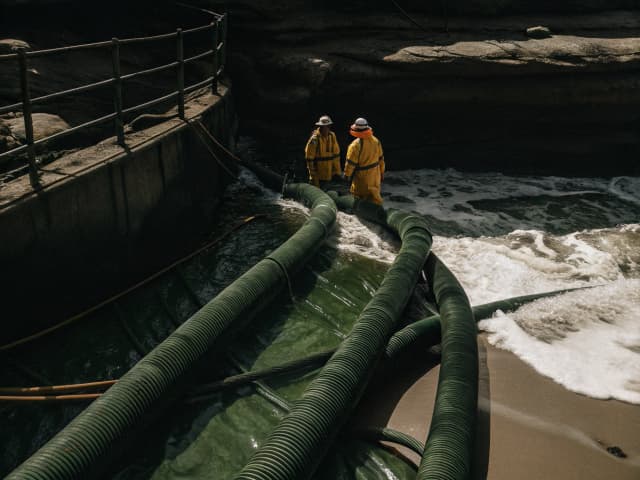
Oil spill prevention: administrator for oil spill response: duties: pipeline inspections.
Requires public review of oil spill risk assessments and financial responsibility requirements every 10 years. Mandates online posting of oil facility financial responsibility certificates within 7 business days. Prohibits restarting idle oil pipelines without passing strict hydrostatic safety tests. Establishes new transparency requirements for oil spill prevention and response programs.
Oil spill prevention: administrator for oil spill response: duties: pipeline inspections.

Requires public review of oil spill risk assessments and financial responsibility requirements every 10 years. Mandates online posting of oil facility financial responsibility certificates within 7 business days. Prohibits restarting idle oil pipelines without passing strict hydrostatic safety tests. Establishes new transparency requirements for oil spill prevention and response programs.
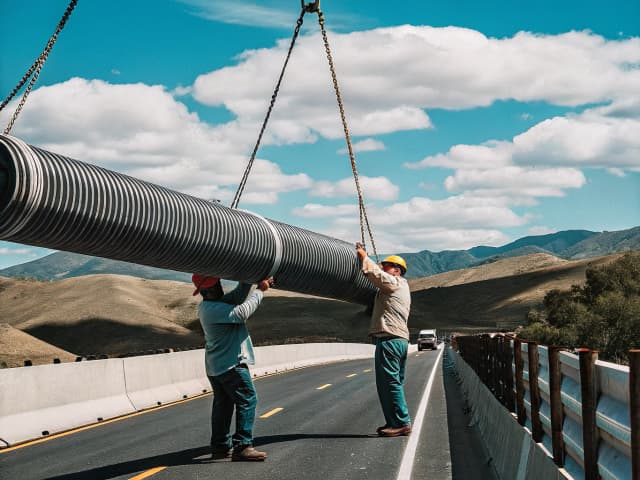
Lake and streambed alteration agreements: exemptions: culverts and bridges.
Creates a temporary exemption from lake and streambed rules for small repairs in Sutter County damaged 2022–2024. Requires a 14-day written notification to the Department of Fish and Wildlife. Mandates a biological survey and consultation with the Department of Fish and Wildlife. Expires January 1, 2027 and excludes the state highway system.
Lake and streambed alteration agreements: exemptions: culverts and bridges.

Creates a temporary exemption from lake and streambed rules for small repairs in Sutter County damaged 2022–2024. Requires a 14-day written notification to the Department of Fish and Wildlife. Mandates a biological survey and consultation with the Department of Fish and Wildlife. Expires January 1, 2027 and excludes the state highway system.
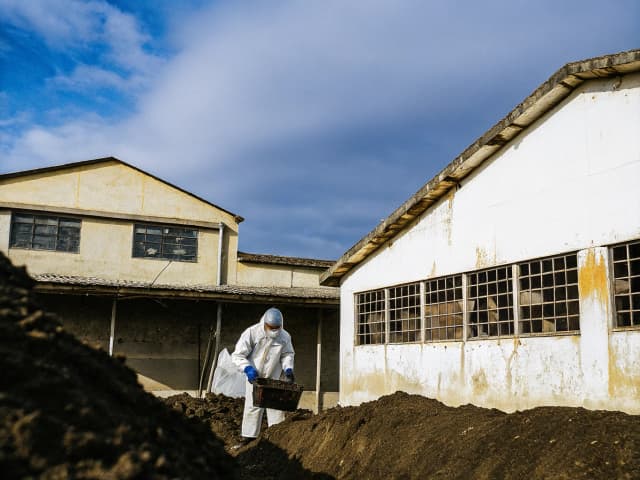
Hazardous materials: California Land Reuse and Revitalization Act of 2004.
Extends the sunset of the hazardous materials immunity act to 2037. Preserves immunity for those who qualified before January 1, 2037. Sets January 1, 2037 as the operative date for extended rules. Allows a future extension only if a statute is enacted before 2037.
Hazardous materials: California Land Reuse and Revitalization Act of 2004.

Extends the sunset of the hazardous materials immunity act to 2037. Preserves immunity for those who qualified before January 1, 2037. Sets January 1, 2037 as the operative date for extended rules. Allows a future extension only if a statute is enacted before 2037.

California Environmental Quality Act: exemption: public access: nonmotorized recreation.
Expands CEQA exemptions for public access projects in parks to include county park agencies. Requires agencies to adopt natural resource management plans before approving trail access projects. Limits exemptions to minimal improvements like signage and portable restrooms. Mandates 30-day public notice and meetings before approving changes to park access.
California Environmental Quality Act: exemption: public access: nonmotorized recreation.

Expands CEQA exemptions for public access projects in parks to include county park agencies. Requires agencies to adopt natural resource management plans before approving trail access projects. Limits exemptions to minimal improvements like signage and portable restrooms. Mandates 30-day public notice and meetings before approving changes to park access.
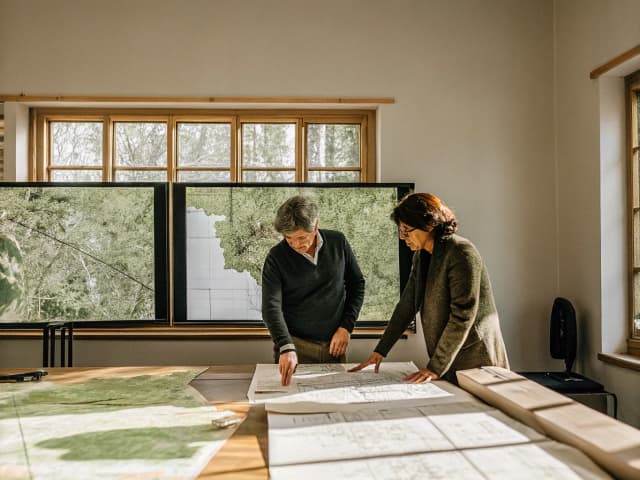
Safety element: local hazard mitigation plan.
Makes technical changes to provisions regarding local hazard mitigation plans in city and county safety elements.
Safety element: local hazard mitigation plan.

Makes technical changes to provisions regarding local hazard mitigation plans in city and county safety elements.

California Environmental Quality Act: exemptions.
Exempts electrical transmission maintenance and upgrade projects from environmental review requirements. Requires projects to occur within existing rights-of-way and restore the area after completion. Mandates lead agencies to file exemption notices with state and county offices. Supports California's goal to achieve 100% clean energy retail sales by 2045.
California Environmental Quality Act: exemptions.

Exempts electrical transmission maintenance and upgrade projects from environmental review requirements. Requires projects to occur within existing rights-of-way and restore the area after completion. Mandates lead agencies to file exemption notices with state and county offices. Supports California's goal to achieve 100% clean energy retail sales by 2045.
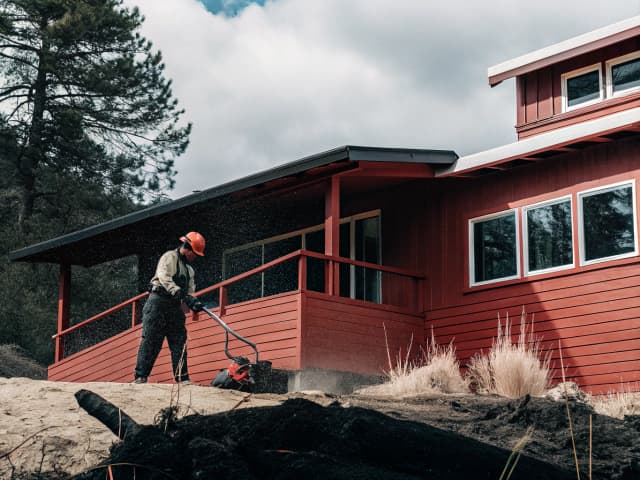
California Environmental Quality Act: defensible space.
Exempts defensible space maintenance projects by public agencies from environmental review requirements. Requires local agencies to determine which projects qualify for the environmental review exemption. Allows local agencies to levy fees to cover costs of implementing the exemption program.
California Environmental Quality Act: defensible space.

Exempts defensible space maintenance projects by public agencies from environmental review requirements. Requires local agencies to determine which projects qualify for the environmental review exemption. Allows local agencies to levy fees to cover costs of implementing the exemption program.
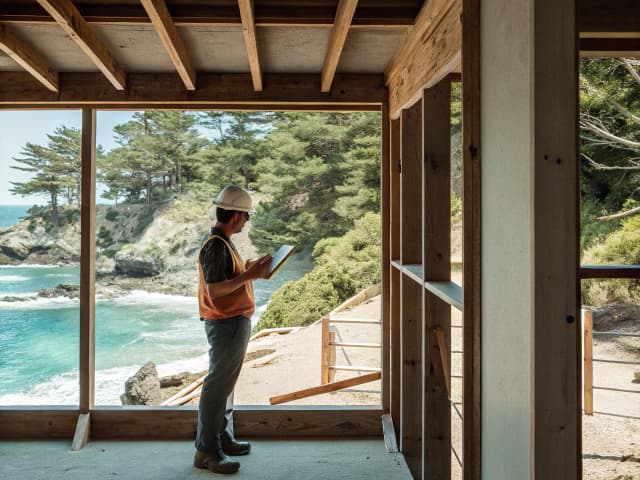
California Environmental Quality Act: expired regional habitat conservation plan: exemption.
Exempts urgent public health and housing projects from environmental review requirements on urban sites under 15 acres. Requires projects to be within expired habitat conservation plan boundaries with prior environmental review. Allows local agencies to levy fees to cover costs of implementing the new exemption program.
California Environmental Quality Act: expired regional habitat conservation plan: exemption.

Exempts urgent public health and housing projects from environmental review requirements on urban sites under 15 acres. Requires projects to be within expired habitat conservation plan boundaries with prior environmental review. Allows local agencies to levy fees to cover costs of implementing the new exemption program.
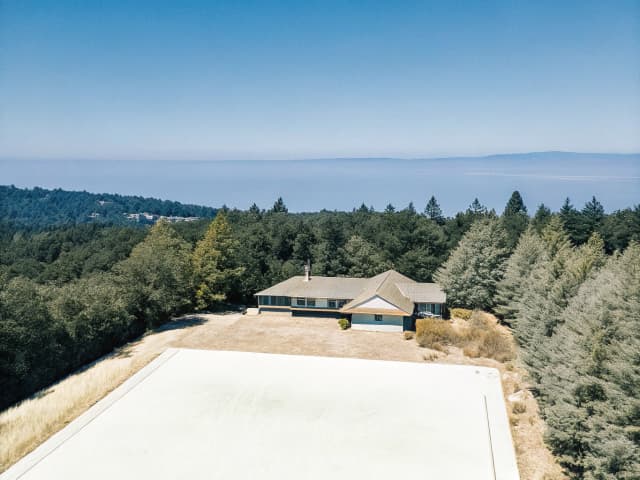
Fire prevention projects: California Environmental Quality Act: coastal development permits: exemptions.
Exempts fire prevention projects from environmental review requirements to expedite wildfire safety measures. Allows fuel modification projects within 500 feet of buildings without environmental permits. Streamlines approval for electrical grid hardening projects by removing environmental review requirements. Requires local agencies to fund implementation through their own fees and assessments.
Fire prevention projects: California Environmental Quality Act: coastal development permits: exemptions.

Exempts fire prevention projects from environmental review requirements to expedite wildfire safety measures. Allows fuel modification projects within 500 feet of buildings without environmental permits. Streamlines approval for electrical grid hardening projects by removing environmental review requirements. Requires local agencies to fund implementation through their own fees and assessments.

Elections: voting by mail.
Eliminates automatic mail ballot delivery to all registered voters and requires voters to request mail ballots. Establishes a new permanent vote-by-mail status that voters can apply for to receive mail ballots automatically. Requires counties to process mail ballot requests between 29 and 7 days before an election. Mandates that mail ballots must be received by election officials before polls close on election day.
Elections: voting by mail.

Eliminates automatic mail ballot delivery to all registered voters and requires voters to request mail ballots. Establishes a new permanent vote-by-mail status that voters can apply for to receive mail ballots automatically. Requires counties to process mail ballot requests between 29 and 7 days before an election. Mandates that mail ballots must be received by election officials before polls close on election day.
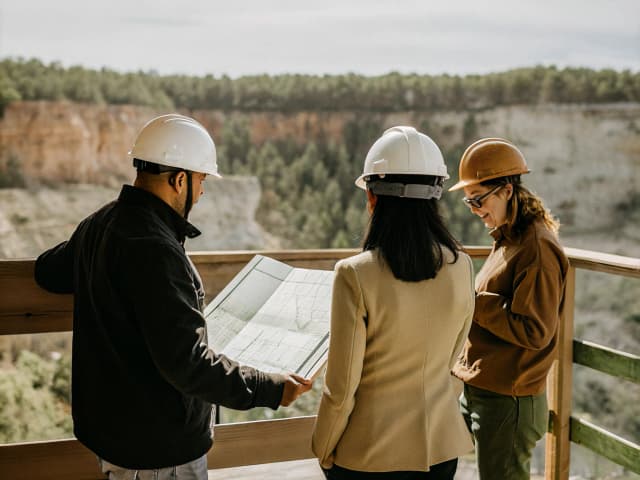
California Environmental Quality Act: exemption: Gypsum Canyon Veterans Cemetery.
Exempts the Gypsum Canyon Veterans Cemetery project from environmental review requirements through 2030. Creates Orange County's first veterans cemetery on 200 acres of public land to serve 90,000 local veterans. Requires the cemetery project to be less intensive than previously approved land use plans. Takes effect immediately as an urgency measure to expedite cemetery construction.
California Environmental Quality Act: exemption: Gypsum Canyon Veterans Cemetery.

Exempts the Gypsum Canyon Veterans Cemetery project from environmental review requirements through 2030. Creates Orange County's first veterans cemetery on 200 acres of public land to serve 90,000 local veterans. Requires the cemetery project to be less intensive than previously approved land use plans. Takes effect immediately as an urgency measure to expedite cemetery construction.
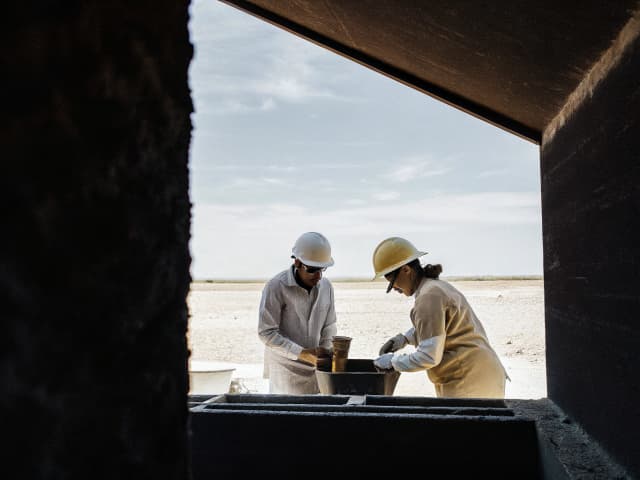
California Environmental Quality Act: geothermal exploratory projects: geothermal field development projects: enhanced geothermal system wells.
Establishes a temporary CEQA exemption for select geothermal exploratory projects through 2031. Requires reconnaissance surveys and tribal scoping before exemption determinations. Promulgates enhanced geothermal system rules by 2029 and requires baselines for field development. Requires logs to disclose well stimulation fluids for CEQA-exempt wells.
California Environmental Quality Act: geothermal exploratory projects: geothermal field development projects: enhanced geothermal system wells.

Establishes a temporary CEQA exemption for select geothermal exploratory projects through 2031. Requires reconnaissance surveys and tribal scoping before exemption determinations. Promulgates enhanced geothermal system rules by 2029 and requires baselines for field development. Requires logs to disclose well stimulation fluids for CEQA-exempt wells.

Z’berg-Nejedly Forest Practice Act of 1973: working forest management plans: harvest area.
Removes the requirement for forest harvest areas to be contained within a single watershed boundary. Applies to private forest owners with less than 10,000 acres of timberland. Maintains requirements for sustainable forest management and environmental protection. Requires forest management plans to balance long-term growth with periodic timber harvesting.
Z’berg-Nejedly Forest Practice Act of 1973: working forest management plans: harvest area.

Removes the requirement for forest harvest areas to be contained within a single watershed boundary. Applies to private forest owners with less than 10,000 acres of timberland. Maintains requirements for sustainable forest management and environmental protection. Requires forest management plans to balance long-term growth with periodic timber harvesting.
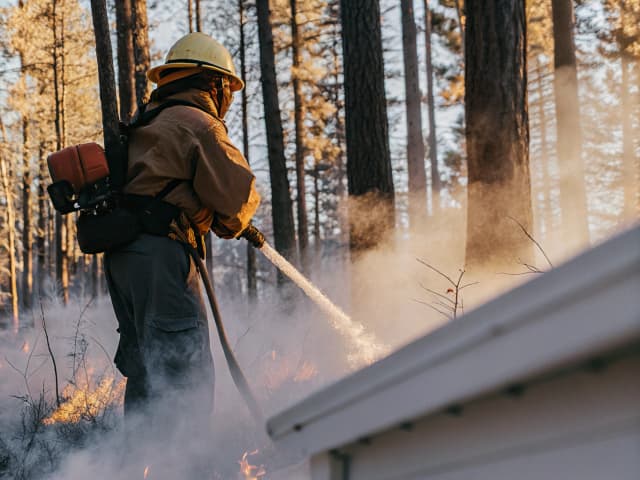
California Environmental Quality Act: exemption: prescribed fire, reforestation, habitat restoration, thinning, or fuel reduction projects.
Permanently exempts forest health projects on federal lands from state environmental review requirements. Authorizes advance grant payments up to 25% for forest improvement projects to eligible organizations. Requires grantees to spend advance payments within six months and file quarterly accountability reports.
California Environmental Quality Act: exemption: prescribed fire, reforestation, habitat restoration, thinning, or fuel reduction projects.

Permanently exempts forest health projects on federal lands from state environmental review requirements. Authorizes advance grant payments up to 25% for forest improvement projects to eligible organizations. Requires grantees to spend advance payments within six months and file quarterly accountability reports.
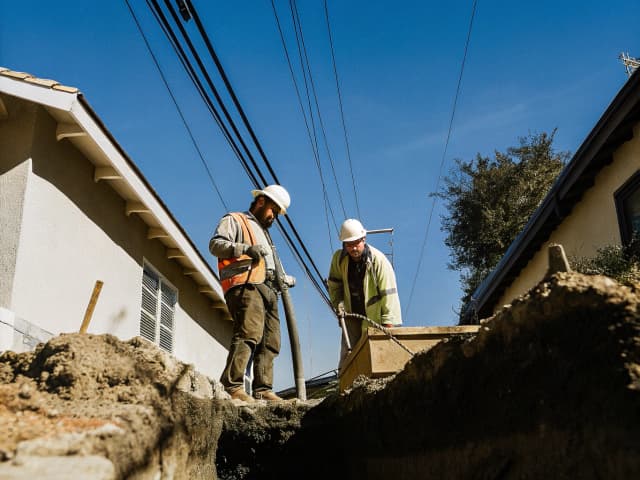
California Environmental Quality Act: exemption: undergrounding powerlines.
Exempts powerline undergrounding projects from California Environmental Quality Act requirements. Requires local agencies to determine which projects qualify for the new exemption. Allows local agencies to levy fees and charges to cover implementation costs.
California Environmental Quality Act: exemption: undergrounding powerlines.

Exempts powerline undergrounding projects from California Environmental Quality Act requirements. Requires local agencies to determine which projects qualify for the new exemption. Allows local agencies to levy fees and charges to cover implementation costs.

California Environmental Quality Act: guidelines: study.
Requires a study on keeping environmental review rules fixed from a project's start through completion. Mandates evaluation of how fixed guidelines affect project timelines and regulatory certainty. Requires submission of findings to the Governor and Legislature by January 1, 2027. Automatically expires on January 1, 2028 after the study is completed.
California Environmental Quality Act: guidelines: study.

Requires a study on keeping environmental review rules fixed from a project's start through completion. Mandates evaluation of how fixed guidelines affect project timelines and regulatory certainty. Requires submission of findings to the Governor and Legislature by January 1, 2027. Automatically expires on January 1, 2028 after the study is completed.
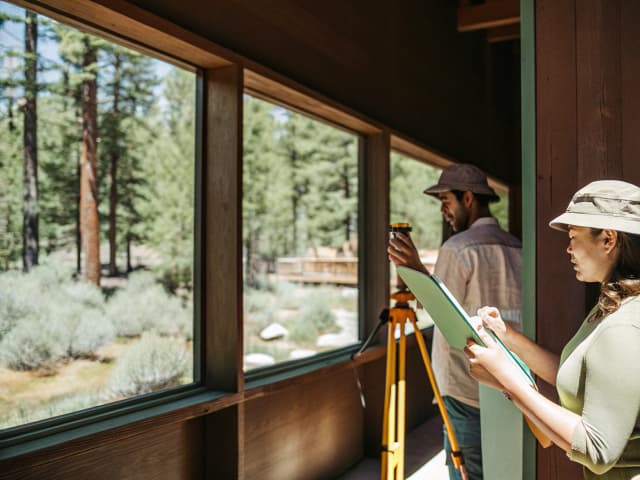
California Environmental Quality Act: the Office of Land Use and Climate Innovation: technical advisory.
Requires development of state guidelines for measuring greenhouse gas and noise pollution impacts by July 2027. Establishes optional thresholds for local agencies to evaluate environmental impacts in urban and rural areas. Mandates consideration of disadvantaged communities when setting environmental impact standards. Requires public posting of environmental guidelines on the state website.
California Environmental Quality Act: the Office of Land Use and Climate Innovation: technical advisory.

Requires development of state guidelines for measuring greenhouse gas and noise pollution impacts by July 2027. Establishes optional thresholds for local agencies to evaluate environmental impacts in urban and rural areas. Mandates consideration of disadvantaged communities when setting environmental impact standards. Requires public posting of environmental guidelines on the state website.
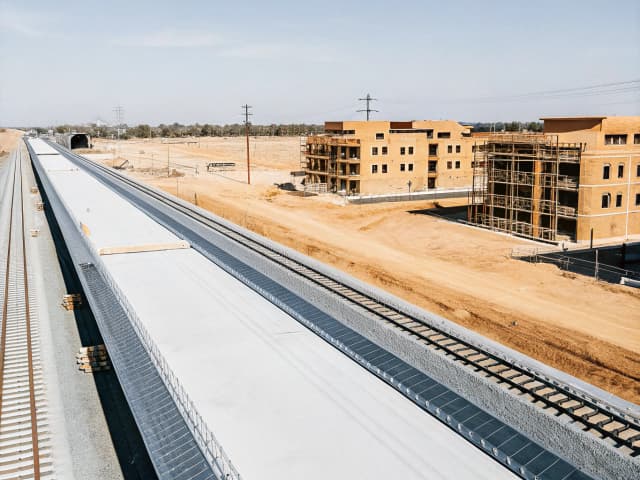
Affordable Housing and Sustainable Communities Program: project eligibility.
Expands funding eligibility for transit projects near planned high-speed rail stations under the state sustainability program. Requires high-speed rail stations to secure full construction funding and begin work before nearby projects qualify. Grants greenhouse gas reduction credits to qualifying transit projects regardless of when rail stations become operational.
Affordable Housing and Sustainable Communities Program: project eligibility.

Expands funding eligibility for transit projects near planned high-speed rail stations under the state sustainability program. Requires high-speed rail stations to secure full construction funding and begin work before nearby projects qualify. Grants greenhouse gas reduction credits to qualifying transit projects regardless of when rail stations become operational.
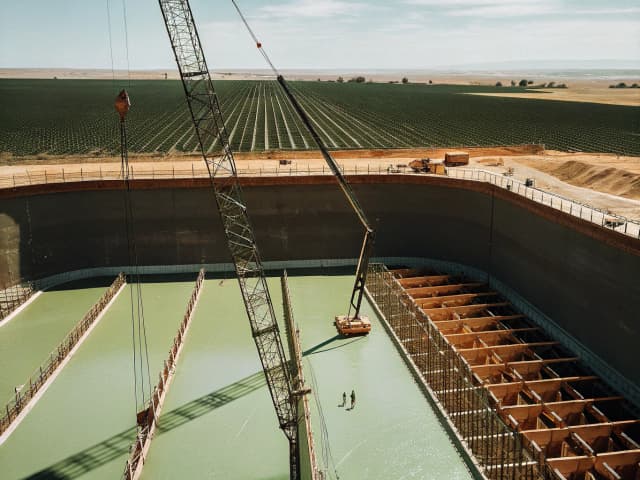
California Environmental Quality Act: environmental leadership development projects: water storage, water conveyance, and groundwater recharge projects: streamlined review.
Expands streamlined environmental review to include water storage and groundwater recharge projects. Requires water projects to provide public benefits and enhance drought preparedness. Mandates local agencies to prepare project records without state reimbursement. Requires developers to fund all legal costs for project challenges.
California Environmental Quality Act: environmental leadership development projects: water storage, water conveyance, and groundwater recharge projects: streamlined review.

Expands streamlined environmental review to include water storage and groundwater recharge projects. Requires water projects to provide public benefits and enhance drought preparedness. Mandates local agencies to prepare project records without state reimbursement. Requires developers to fund all legal costs for project challenges.
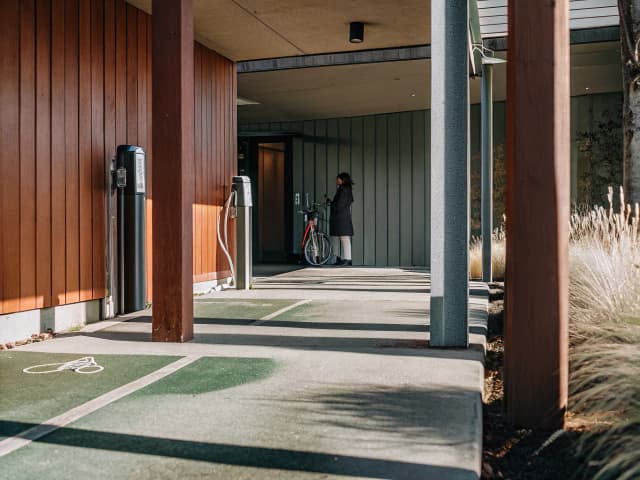
California Environmental Quality Act: exemptions.
Expands CEQA exemptions to include residential, mixed-use, and transit priority projects located in very low vehicle travel areas, aiming to promote sustainable development. Increases maximum site area for residential infill projects from 4 to 5 acres and allows certain housing projects within state conservancy boundaries. Requires projects to be consistent with specific plans or community plans that had environmental impact reports certified within the past 15 years. Mandates lead agencies to file notices of exemption with the Office of Land Use and Climate Innovation for qualifying projects.
California Environmental Quality Act: exemptions.

Expands CEQA exemptions to include residential, mixed-use, and transit priority projects located in very low vehicle travel areas, aiming to promote sustainable development. Increases maximum site area for residential infill projects from 4 to 5 acres and allows certain housing projects within state conservancy boundaries. Requires projects to be consistent with specific plans or community plans that had environmental impact reports certified within the past 15 years. Mandates lead agencies to file notices of exemption with the Office of Land Use and Climate Innovation for qualifying projects.